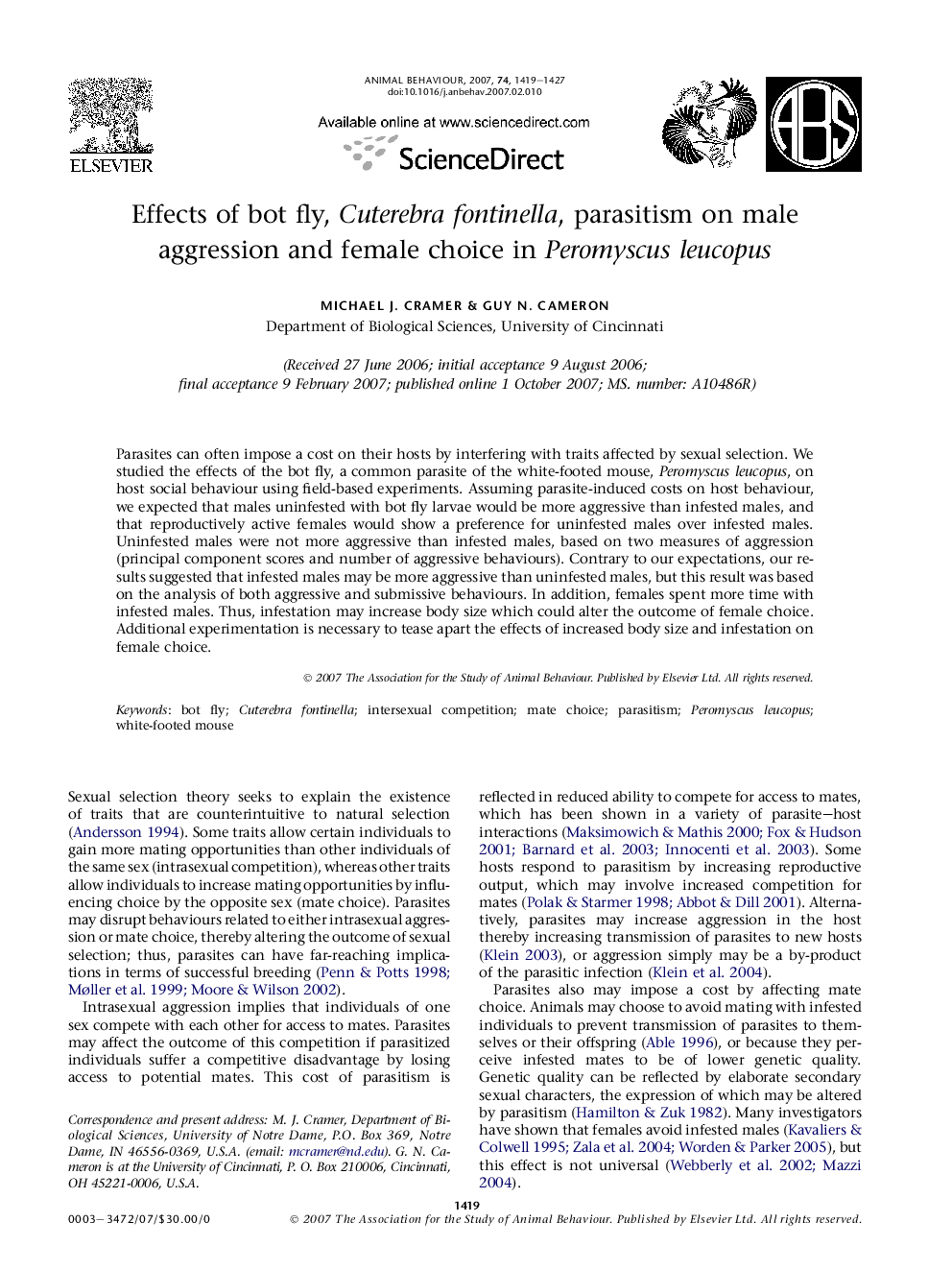| Article ID | Journal | Published Year | Pages | File Type |
|---|---|---|---|---|
| 2418297 | Animal Behaviour | 2007 | 9 Pages |
Parasites can often impose a cost on their hosts by interfering with traits affected by sexual selection. We studied the effects of the bot fly, a common parasite of the white-footed mouse, Peromyscus leucopus, on host social behaviour using field-based experiments. Assuming parasite-induced costs on host behaviour, we expected that males uninfested with bot fly larvae would be more aggressive than infested males, and that reproductively active females would show a preference for uninfested males over infested males. Uninfested males were not more aggressive than infested males, based on two measures of aggression (principal component scores and number of aggressive behaviours). Contrary to our expectations, our results suggested that infested males may be more aggressive than uninfested males, but this result was based on the analysis of both aggressive and submissive behaviours. In addition, females spent more time with infested males. Thus, infestation may increase body size which could alter the outcome of female choice. Additional experimentation is necessary to tease apart the effects of increased body size and infestation on female choice.
